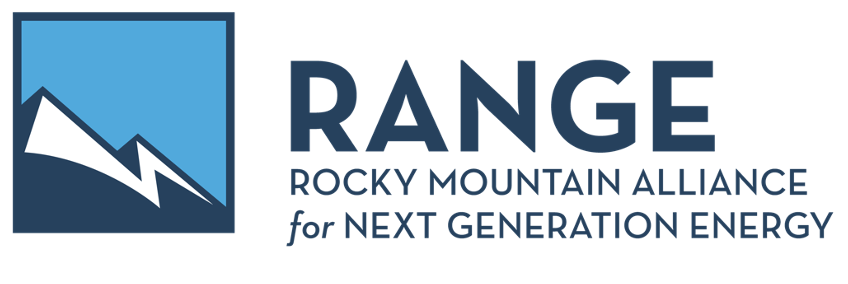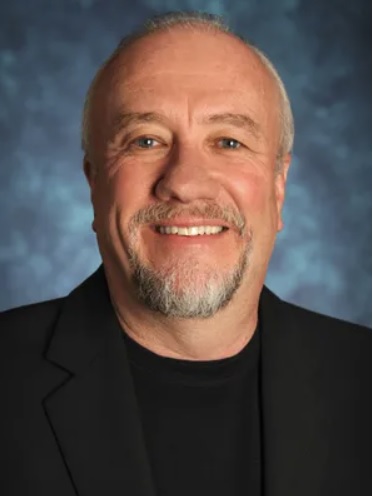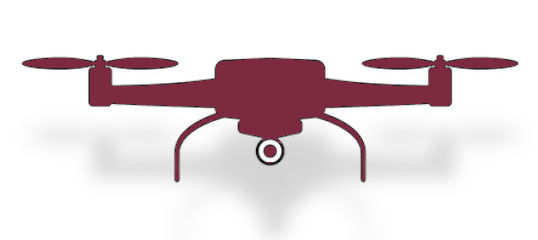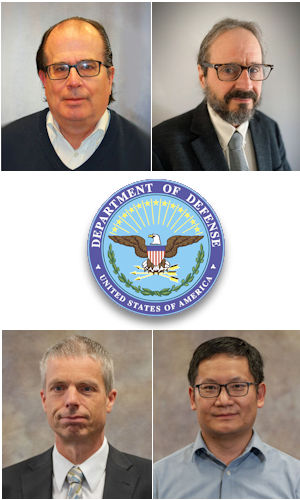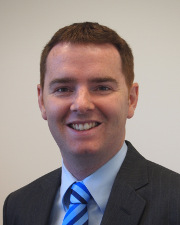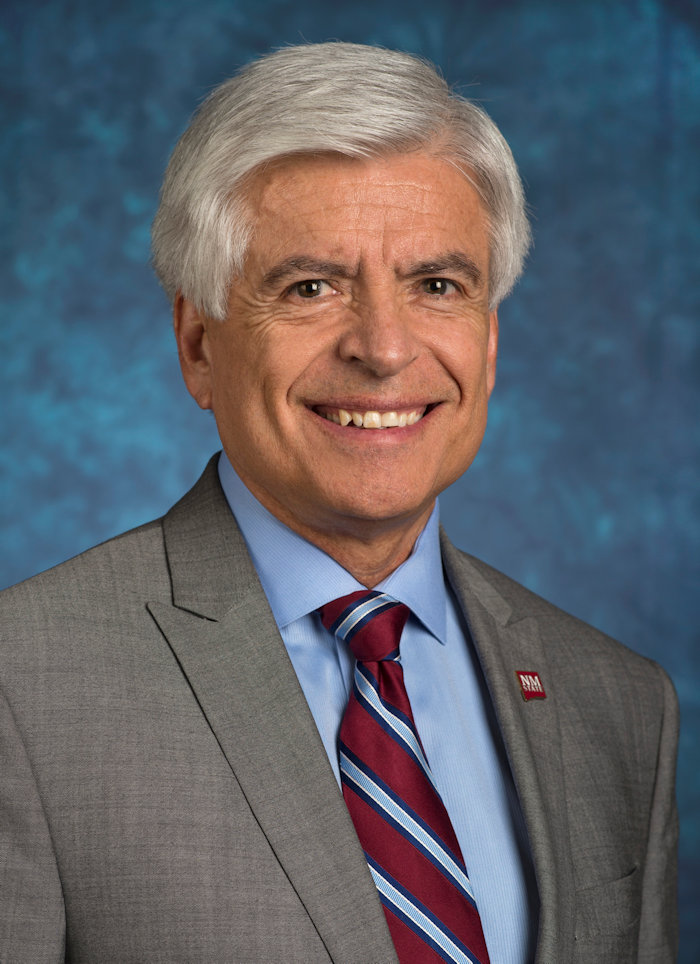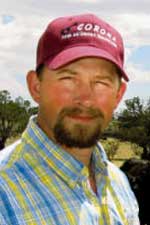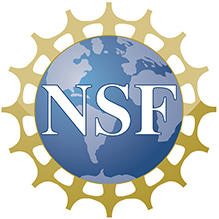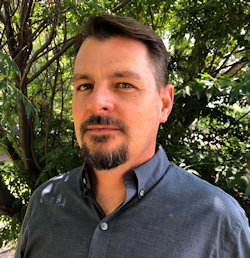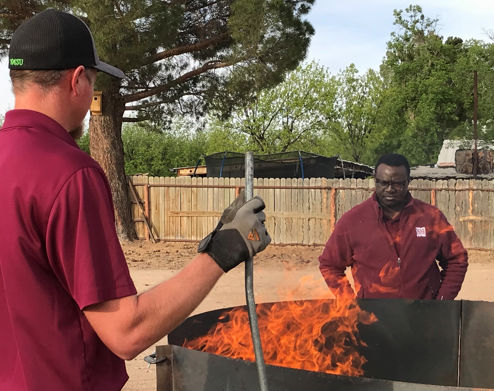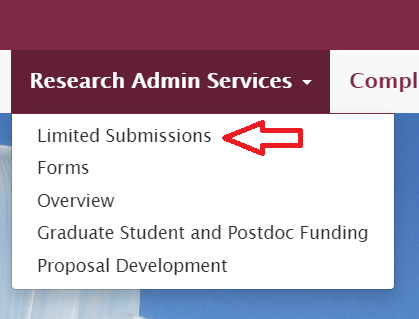 |
|
Department of Energy H2 Hubs, Broader Impacts and Social Justice
Dr. Luis Cifuentes, Vice President for Research, Creativity, and Strategic Initiatives, and Lenny Martinez, Vice President for Economic DevelopmentNew Mexico State University is a key member of RANGE (Rocky Mountain Alliance for Next Generation Energy), a collaborative formed on the heels of the February 2022 announcement of Governors from four states — New Mexico, Colorado, Utah, and Wyoming —to join forces on a Western Inter-State Hydrogen Hub (WISHH) and compete for H2 Hub funding from DOE (U.S. Department of Energy). Chancellor Dan Arvizu is on the WISHH charter committee. Lenny Martinez, Patricia Sullivan and I participate on the RANGE EEEJ (Equity, Energy and Environmental Justice) and DEI (Diversity, Equity and Inclusion) working group, as well as working groups focused on administration/operations, metrics, workforce development, and economic development. Equity, energy and environmental justice are stated priorities for H2 Hubs, which will be required to implement the Justice40 Initiative in disadvantaged communities (DACs). This social justice initiative, established in President Biden’s early tenure, requires Federal agencies to engage states and local communities. The aim is to deliver at least 40 percent of the overall benefits from Federal investments in climate change, clean energy and energy efficiency, clean transportation, affordable and sustainable housing, remediation and reduction of legacy pollution, critical clean water and waste infrastructure, and related training and workforce development to DACs. The Justice40 Initiative is a more detailed statement of broader impacts, which became a staple of NSF review criteria in 1997. NSF’s Proposal and Award Policies and Procedures Guide (section II.C.2.d), “values the advancement of scientific knowledge and activities that contribute to the achievement of societally relevant outcomes” to include “full participation of women, persons with disabilities, and underrepresented minorities in science, technology, engineering, and mathematics (STEM)” and “improved well-being of individuals in society.” Social justice rests on the principles of access, equity, diversity, participation, and human rights. For DACs, particularly the Tribal Nations in the WISHH states, these principles have a spectrum of application. At their best, they moved the needle favorably in terms of justice and social transformation, but at their worst, they created skepticism and lessened our ability to weave and strengthen our social fabric. Unfortunately, federal funding targeting social justice has historically been awarded to entities who have an affiliation with DACs, but whose actions and outcomes have less than impressive lasting local impact. The emerging new energy economies, including H2, provide an unique opportunity to match Justice40 Initiative intent with results. H2 Hub proposal submitters and associated federal contractors must engage DACs strategically. Passive partnerships, such as those made with Tribal Nations around uranium and coal development, created an emerging middle class. As uranium and coal mining transition to wind, solar, and now H2, that fledgling middle class will be lost unless training, workforce development, and local economic development occur through strategic and active relationships. NMSU is committed to strategic engagement, active long-lasting investments along with our academic partners, participating private sector companies, and the public sector. Our strategic engagement plan will leverage each of the five principles of social justice, but will also demonstrate a foundational component of social justice. |
|
Which does not belong? Government Relations, Research, Workforce Development, Economic Development?
By Dr. Ken Van Winkle, Associate Vice Chancellor, External Relations, Economic DevelopmentActually, they all belong. The intersections of these activities at NMSU are important to the growth of the economy in our community, state, region and nation. Although there are a variety of research activities leading to economic development, the most common first step is to win a grant. The discovery of state and federal money for research is enhanced by strong government relationships which improves the odds of grant funding. Researchers find solutions to a variety of technical, economical, and social issues that lead to new jobs. In turn, new jobs stimulate workforce development and promote economic development. For example, if researchers discover efficient ways to recapture water for agricultural use, that provides a foundation for new jobs and boosts economic growth related to food production. NMSU is the ideal setting for the “economic development” cycle of events to germinate, mature, and improve the quality of life for the citizens of our state and region. With this in mind, we have formed a small, informal group of highly motivated NMSU leaders to communicate and share ideas. We meet once a week for a half-hour, stand-up style meeting. Any thoughts related to the intersections of Government Relations, Research, Workforce Development and Economic Development are welcome. Please feel free to contact me at kvanwink@nmsu.edu. |
|
Streamlyne Updates: Final ARGIS to Streamlyne MigrationBy Dr. Phillip De Leon, Associate Vice President for ResearchBeginning Thursday, June 23, 2022 at 5:00 pm, we will initiate the final migration of data from ARGIS to Streamlyne. At that time, ARGIS will no longer be available to the NMSU community. Some proposal and award data previously accessed in ARGIS will be available in Streamlyne. Further, for any awards made beginning Thursday, June 23, 2022 at 5:00 pm, these will not be processed until the Streamlyne Award module is live anticipated for Wednesday June 29, 2022 at 7:00 pm. For those awards that require immediate setup, we encourage the use of a waiver request process which can be initiated by the College research office. REMINDER: Student and Non-NMSU Employee Access to Streamlyne Compliance Module |
|
Unoccupied Aircraft Systems (UAS) Policy at NMSU
By Dr. Leslie Edgar, Associate Dean for Research, College of Agricultural Consumer and Environmental SciencesA team of researchers and administrators were invited to discuss the current Unoccupied Aircraft Systems (UAS) policy and procedures a few months ago. Together, we have created a summary of recommendations for changes. That document is now being shared across the campus to seek input. More expansive documents that include meeting notes and full actions for integration of changes are also available. If you have questions or need more information, please contact Leslie Edgar, Polly Wagner, Jerry Fleming, or your Associate Dean of Research for additional information or questions. We are asking that all recommendations for modifications or changes be made by July 31, 2022, to allow the subcommittee to continue with next steps needed to request UAS changes. We appreciate your assistance as we work to modify the existing UAS policies and procedures. |
|
NMSU Obtains Highly Competitive DoD Award to Establish Center of Excellence in Sensor Development and Testing for HypersonicsBy Dr. Hamid Mansouri Rad, Senior Proposal Development Specialist, RASWe are pleased to announce that NMSU’s $1 million proposal to DoD Defense Established Program to Stimulate Competitive Research (DEPSCoR) program has been selected for funding. Led by Dr. Luis Cifuentes, VP for Research, Creativity, and Strategic Initiatives, this proposal aims to leverage existing scientific expertise and background at NMSU to establish a basic research Center of Excellence in Sensor Development and Testing for Hypersonics, an area that has been identified as a research gap by leading stakeholders. “New sensors are crucially needed for the rapid development and successful operation of hypersonic vehicles,” states Dr. Jay Frankel, Head of the Department of Mechanical and Aerospace Engineering, R.G. Myers Endowed Professor, and one of the co-principal investigators on this project. “This project will allow us to design sensors (heat flux, wall shear, among others), analyze them based on theory and simulations, and test them in a hypersonic wind tunnel and high-power laser facility.” This was one of only two capacity-building proposals selected for funding out of twenty submitted by a total of 37 eligible states and territories. “We potentially competed against excellent universities from Indiana, Iowa, and Tennessee as well as other states with highly competitive programs. We did pretty well,” added Dr. Frankel. Other co-principal investigators on this project are Drs. Andreas Gross Associate Professor and Fangjun Shu, D. L. and A. G. Chapman Endowed Associate Professor of Mechanical and Aerospace Engineering Department. For more information, please contact Dr. Frankel at jfrankel@nmsu.edu. Pictures from left to right: Drs. Luis Cifuentes, Jay Frankel (top), Andreas Gross, and Fangjun Shu (bottom).
|
|
NMSU Team Garners Prestigious NSF Award
By Dr. Hamid Mansouri Rad, Senior Proposal Development Specialist, RASCongratulations to Drs. Jay Misra, Roopa Vishwanathan, and David Mitchell for garnering a $1 million NSF award. Titled, “RINGS: Resilient Edge Ecosystem for Collaborative and Trustworthy Disaster Response (REsCue),” this project aims to address challenges for wide acceptance of Internet of Things (IoT)-enabled services related to Next Generation Public Safety Networks for disaster response. The project is led by Dr. Misra, professor of Computer Science in collaboration with Dr. Mitchell, assistant professor of Electrical and Computer Engineering, and Dr. Vishwanathan, assistant professor of Computer Science. External collaborators on this project are Drs. Abderrahmen Mtibaa (assistant professor of Computer Science at University of Missouri-Saint Louis) and Reza Tourani (assistant professor of Computer Science at Saint Louis University). The effort is funded by the NSF Resilient and Intelligent Next Generation Systems (RINGS) program which also involves support from the Department of Defense, as well as Apple, Ericsson, Google, IBM, Intel, Microsoft, Nokia, Qualcomm and VMware in private sector. “This research project includes an ambitious education, outreach, and broadening participation plan to actively engage students from underrepresented minority groups at various academic levels,” states Principal Investigator Misra. As he explains, the project will develop an introductory course on computer security teaching freshmen fundamentals of computer and network security. In addition, the research findings resulting from this project will help shape existing courses such as Computer Networking I and II, Computer Security, Cryptography, Cloud Computing and Modern Coding Theories. The results of this project will be disseminated through journal articles and conferences. In addition, all software generated through this project will be made available publicly. For more information about this award please contact Dr. Misra at misra@nmsu.edu.
|
|
Recognizing NMSU's Large Proposal Submitters
By Dr. Hamid Mansouri Rad, Senior Proposal Development Specialist, RASCongratulations to Chancellor Dan Arvizu and Dr. Eric Scholljegerdes for each leading a proposal exceeding one million dollars in the month of May. Associate Professor of Animal and Range Sciences, Dr. Eric Scholljegerdes submitted a proposal to the US Department of Agriculture Rural Development requesting $5 million for a two-year project that aims to modernize and improve meat production and processing in New Mexico. The proposed project enhances meat production and processing in the state, positively impacting economic development and food security at local, state, and regional levels. Principal collaborators on this proposal are Dr. Shanna Ivey (Head of the departments of Animal and Range Sciences and Extension Animal Sciences and Natural Resources) and Mr. Shad Cox (Director of Livestock Operations and Superintendent of Corona Range and Livestock Research Center and Southwest Center for Rangeland Sustainability). For more information about this proposal please contact Dr. Scholljegerdes at ejs@nmsu.edu.
|
Chancellor Dan Arvizu, NMSU |
A Long Road to Tao: NMSU CMI to Offer Hands-on Film Class in Fall
By Dr. Hamid Mansouri Rad, Senior Proposal Development Specialist, RASNMSU’s Creative Media Institute (CMI) will offer a special film class starting in Fall 2022 that will engage students in hands-on training on a low budget independent film titled A Long Road to Tao. This self-financed, non-union, full-length feature involves collaboration between Producer/Co-screenwriter Michael Allen and Director/Co-screenwriter Alex Carig. A professional fine art wave photographer, Allen has been shooting film, video, and still photography in the ocean since he was a child. He holds a Master's degree in Philosophy and a Certificate in Asian Studies from the California State University at Long Beach and has presented numerous conference paper on the application of Taoism. He is the author of the book Tao of Surfing: Finding Depth at Low Tide a non-fiction which serves as the foundation for A Long Road to Tao film project. As a skilled ocean photographer, Allen will direct the water photography for this film. Alex Carig has always had a passion for film since shooting with a Super-8 movie camera as a child. He graduated with his film directing degree from San Francisco State University. He has worked in the feature film and television industries for numerous studios including Warner Brothers, MGM, and Sony Pictures. He is a passionate screenwriter and understands the significance of bringing a thought-provoking, socially relevant film to the big screen. “I’m looking forward to working with NMSU CMI students and imparting skills I have obtained over the years to inspire and help these students reach their goals” he states. Carig has been with A Long Road to Tao film project since its inception. As both director and co-screenwriter, he brings a vision to the feature film which will primarily take place in Southern New Mexico and in California for ocean principal photography. Serving as the Director of Photography, Sherwin Lau, associate professor at NMSU CMI, will oversee the film class to be offered at NMSU. “The three of us have been conducting interviews with film students to place them into appropriate crew positions that will enhance their already existing skill-sets, and also provide them with new skill development,” says Lau. As he explains, the hands-on training will provide real film-making experience in pre-production and production which will help students after graduation when they apply for other film jobs. During the semester, students will learn the process of making a feature film and how to, not only take those skills to work on other films after they graduate, but also have the tools to create their own films using local talent and resources. "Our students make up the majority of the crew positions, from assistant directors, camera team, production office, sound team, etc," he adds. "We are even bringing on CMI alums who have been working professionally as a key part of the crew and who will serve as mentors to the students." “This motion picture has been many years in the making and both Michael and Alex have been to this region of New Mexico numerous times to location scout” says CMI Director Amy Lanasa. “They always found the local people supportive, friendly, and genuine.” As Michael Allen explains, the film is being shot here in Las Cruces/Mesilla because this is where the actual story took place. “I knew early on that I needed to film here to stay true to the story,” states Allen. “We are excited to form this symbiotic partnership and see this as the possible creation of an entirely new film model.” For more information about this CMI course, please contact Amy Lanasa at amyla@nmsu.edu. |
Michael Allen, Producer
|
Virtual Presentation on Writing NSF CAREER ProposalsBy Dr. Hamid Mansouri Rad, Senior Proposal Development Specialist
Applicants may submit only one proposal in each cycle and only three proposals before obtaining tenure position. |
CAREER |
Building Research Capacity: Data Science and Computing for Life SciencesDr. Tanner Schaub, Director, Research Cores ProgramThis spring the RCSI Research Cores Program is leading a partnership between the New Mexico NIH INBRE program (led by Dr. Shelley Lusetti), Office of Vice President for Research, Creativity, and Strategic Initiatives (RCSI), and the Office of the Provost to bring comprehensive data science and computing capability to NMSU life science researchers. This data science research center will address a major gap in our ability to execute full experimental workflows from cells, through analytical interrogation and data generation, to rigorous feature extraction, alignment and analysis of multi-omic data sets and associated metadata. This center will also establish dedicated support of cloud computing at NMSU and we anticipate growth that will move beyond life sciences as this capability matures. Additionally, Center capability will support NMSU’s established biomedical researchers on topics such as data management, storage and security, and will provide integration of the data outputs from the tools in our state-of-the-art Chemical Analysis and Instrumentation Laboratory and other labs. The concept and scope of the Center is being formulated by a strong faculty working group. Near term activity will include discussion of infrastructure, cloud computing and data management with the NMSU CIO and drafting of the position description for the center’s Founding Director. We encourage NMSU faculty and administrators who have interests and/or needs in this area to contact the working group and/or leadership team to voice your input, immediately: Faculty Working Group:
|
|
NMSU's Biochar Project
By Ms. Claire Montoya, Program Manager, Agricultural Experiment Station Administration, ACESThe biochar project was sponsored by the NMDA Healthy Soil Program to help train farmers how to convert their farm wood waste to biochar that can benefit the soil health of farmlands in southwestern New Mexico. More than 30,000 tons of pecan wood waste is generated annually in Doña Ana County of New Mexico. Many farmers burn these wood wastes to ash in the open air. This pollutes the environment and increases the greenhouse gases discharged into the atmosphere. Furthermore, the ash produced by burned materials is harmful to arid soils, as it can raise the pH of already alkaline soils. By turning the wood waste into biochar, the carbon in the wood material is changed into a stable form which when applied as a soil amendment can stay in the soil for a very long time without being lost as carbon dioxide. This results in carbon sequestration in the soil and a reduction in greenhouse gas emissions into the atmosphere. Farmers and stakeholders are being trained on how to use the Ring of Fire biochar kiln to produce biochar in the field. The kiln is portable and can be disassembled and transported in the back of a pickup truck. The biochar project is housed at the Long-term Soil Health Research and Demonstration site located at the NMSU Leyendecker Plant Science Research Center. Biochar is highly beneficial for soil health, especially in arid agroecosystems. Research at NMSU has shown that biochar can improve the soil moisture-holding capacity, increase the stability of soil aggregates, and enhance the soil microbial activities. Using biochar as a soil amendment can help farmers manage their fields by increasing the resiliency of the soil to climate change. We will continue with outreach to disseminate research information on the benefits of biochar and train more farmers on how to operate the Ring of Fire kiln to make biochar and apply it to their farmlands to improve soil health. For more information, please contact Dr. John Idowu at jidowu@nmsu.edu. |
|
Limited Submission Funding OpportunitiesBy Dr. Hamid Mansouri Rad, Senior Proposal Development Specialist, RASResearch Administration Services maintains a list of limited submission funding opportunities for NMSU research community. The list is accessible through a link on the Research website, through the Research Administration tab. NMSU users can also access the list directly on SharePoint. We encourage NMSU researchers to periodically visit the site and if they are interested in any of the opportunities to please inform us by sending email to ras@nmsu.edu. |
|
Pivot Funding Opportunity DatabaseBy Dr. Hamid Mansouri Rad, Senior Proposal Development Specialist, RASThis is a reminder that in order to assist NMSU faculty and staff in locating external funding opportunities, the RCSI has purchased a subscription to ProQuest’s Pivot available at https://pivot.proquest.com/session/login.
To request a one-on-one or group Pivot training, send email to hamid@nmsu.edu. |
|
Questions and comments regarding NMSU’s Research Digest should be directed to Hamid Mansouri Rad, Ph.D. at hamid@nmsu.edu, (575) 646-6429. |
|
